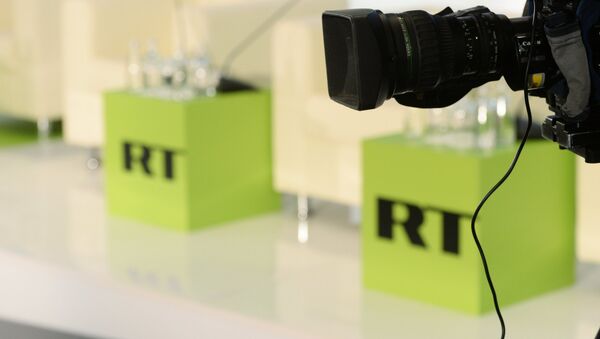"Upon receiving this information, the Embassy promptly contacted the Foreign Office and expressed resolute disagreement with the decision. It amounts to direct politically motivated discrimination of the Russian channel. The refusal of accreditation comes on top of the months-long smear campaign against RT by British political figures, governmental bodies, including media regulator Ofcom, and even fellow journalists", the embassy said, noting that RT sent the accreditation request several weeks ago.
The diplomatic mission recalled that it had already earlier pointed to the "deficiencies in the organisation of the Conference".
In particular, delegations are not allowed to work on the conferee’s final document as "it is being drafted secretly by a limited group of states". Despite having invited Russian diplomats to the conference, the Foreign Office "failed to invite Embassy representatives to a dedicated briefing for the diplomatic corps – ‘for technical reasons'" it added.
"Now a leading Russian international TV channel is denied access to the forum, despite being officially registered and working in the UK, on legal grounds. What better illustration of the real situation with media freedom in the UK does one need? Yet the organizers of the Conference, as far as we understand, wish to discuss the situation with media freedom anywhere in the world, but not in this country", the embassy concluded.
Earlier on Friday, RT and Sputnik editor-in-chief Margarita Simonyan said that the Foreign Office had refused the broadcaster's request for accreditation for the conference, due to take place in London from 10-11 July. According to Simonyan, organizers told the broadcaster that the quota of journalists invited had already been reached.
The situation around Russian media in the West, including in the United Kingdom, has become increasingly difficult in recent years.
The UK Office of Communications (Ofcom), in particular, has repeatedly targeted the RT broadcaster with investigations. In December 2018, the regulator said that RT "broke broadcasting rules by failing to preserve due impartiality" in several programs.
In a statement published in January, the channel stressed that none of the in-breach decisions against RT concluded that the channel "had disseminated inaccurate information".
According to RT, Ofcom wanted the broadcaster to give more attention to "mainstream viewpoints of other broadcasters" instead of giving the audience an opportunity to listen to unbiased coverage of world events.


